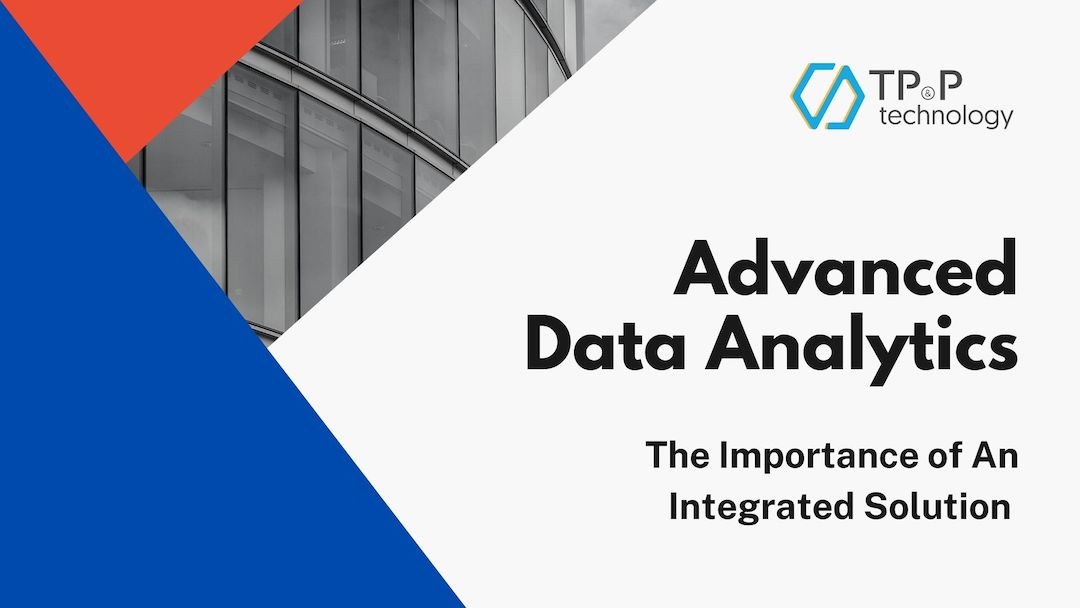
Advanced-Data Analytics: The Importance of An Integrated Solution
The last two years have witnessed an accelerated demand for digital services due to the global pandemic. The demand for new technologies and digital transformation, including advanced data analytics, also skyrocketed as a result.
According to a report by Statista, in 2022, digital transformation spending is predicted to hit 1.78 trillion U.S. dollars. In the period from 2020 until 2023, investment for digital transformation is projected to reach almost 7 trillion U.S. dollars.
What is driving digital transformation?
The rapid growth of digital transformation in recent is due to a number of various factors, including the COVID-19 pandemic which disrupts many businesses across industries, prompting organizations to digitize their business processes to fulfill the changing market demands. Other reasons include the need to keep up with the market and competitors. All in all, leveraging cutting-edge for digital transformation allows businesses to become more agile in answering to the market changes, and create a culture of making decisions based on real-time or near real-time data insights.
With the speed of digital transformation indicating no sign of slowing down anytime soon, it's critical that business organizations are well-prepared to deliver as expected.
Yet, due to the lack of in-house technical resources and IT talents as well as skills, many organizations may find it challenging to realize and bring their digital projects to life successfully. Even in the developed nations, according to Gartner, many enterprises are struggling to hire sufficient IT talents which is a major barrier to adopting new emerging technologies and implementing advanced analytics solutions for data-driven decision making.
The importance of data
In fact, many business users understand that quick and convenient access to data and insights reports, as well as applications, is essential to their productivity and results. But the truth is, many organizations are failing to deliver the requirement of advanced data and analytics solutions needed. As a result, businesses might be missing out on the opportunity of using data to drive business value. 
Moreover, the lack of access to data for generating necessary insights may inhibit the ability of organizations to create connected customer experiences in the long term. This boils down to the problem of integration and challenges in connecting various sub-systems and applications to allow one single source of truth - data silos ultimately impacting long-term business growth and revenue.
Why is an integrated solution necessary?
Many businesses usually adopt new technologies and purchase software applications separately based on departmental needs instead of taking time to plan ahead for an integrated software system. This is usually due to the immediate and/or short-term revenue growth objective. As a consequence, businesses usually implement different software applications systems at separate times and operate and manage them disparately - leading to non-consistent data issues and requiring users to switch between applications to access data.
In the long run, the whole infrastructure may cause businesses to become less agile and incapable of responding quickly to changes, especially during times of pandemics like today. Additionally, this also translates to the loss of productivity and eventually hinders business growth.
If your business is currently relying on many silos systems for operations, then it's time to reach out to a system integration specialist for consulting to resolve those issues.
The Need for Integration
Integration can help businesses to allow disparate systems to work well together and in harmony ensuring data consistency, at the same time enhancing productivity. Furthermore, system integrations also focus on solving the challenges associated with increased interoperation between systems, as they offer a considerable decrease in the impacts of changes taking place among these systems.
The resolution for the challenges of connecting systems and applications is heavily influenced by collaboration between IT and business users. This can be achieved across departments, involving business users instead of just IT teams, to unlock and integrate between different data sources for one single truth.
An integrated solution and proper data management, taken together, can enable companies to optimize their analytics and business reporting process, by collating data from different sources and deriving the insights needed to make decisions. 
Benefits of integrated solutions
Boost in productivity:
Integrated solutions allow employees quick and easy access to data whenever they need it, thereby boosting productivity since they no longer need to spend time on switching between applications to collect and aggregate data. Employees can focus more on the higher-value activities, helping businesses unlock growth and innovation.
IT time and cost savings:
Managing software systems and applications in silos, especially ones, is complicated and can result in high operations costs and expensive maintenance. In particular, when new versions or builds of separate software applications are updated and deployed, additional time and effort must be spent to ensure the existing and new applications versions work well together.
This could result in a loss of time and productivity. On the contrary, an integrated solution will enable the IT team, to save time and focus on improving business operations, as a result decreasing operational expenses.



